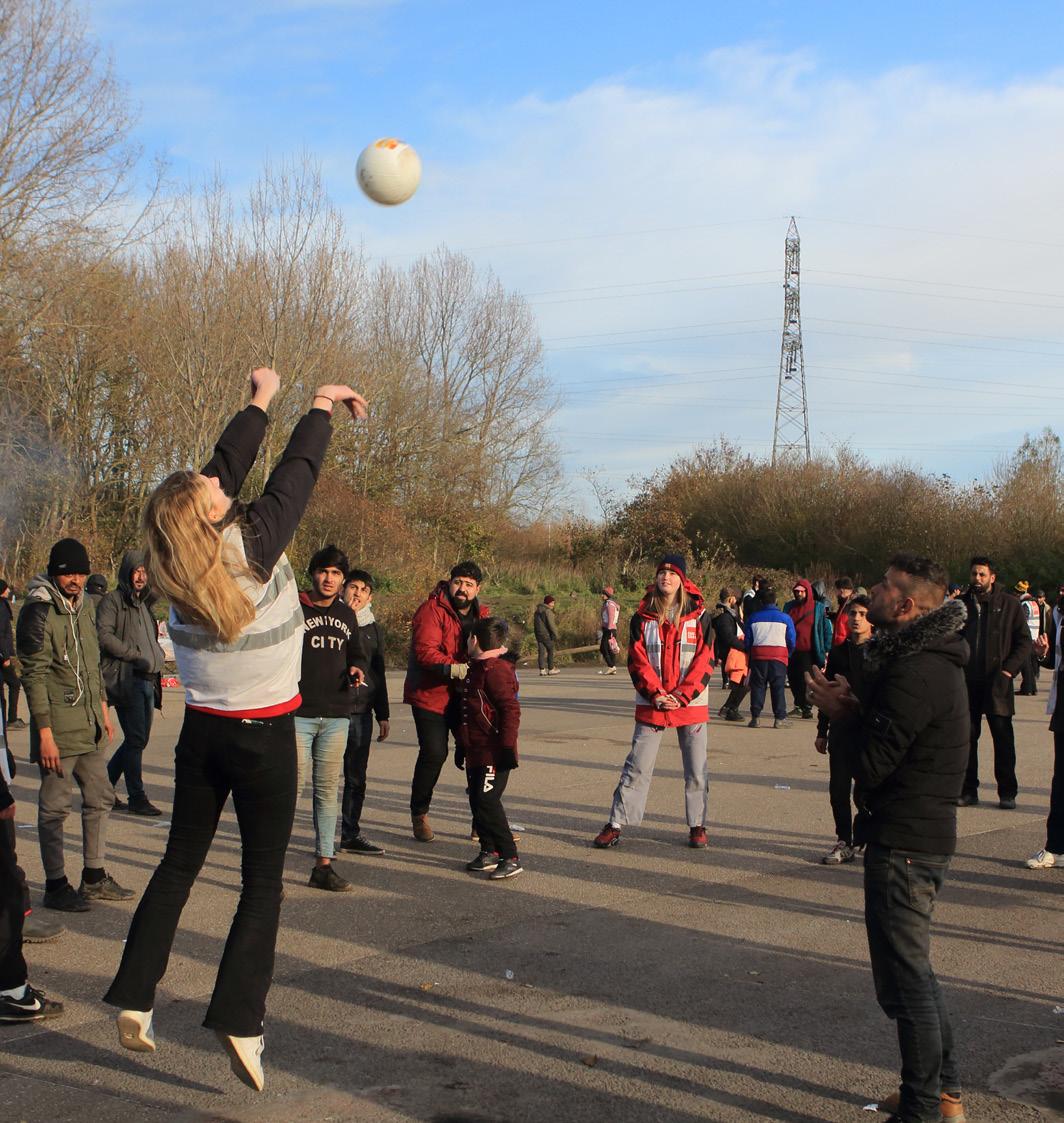
2 minute read
What Does Science Show Us About Mental Health?
Arefugee is a displaced person who has been forced to cross national boundaries and is unable to return home safely. Globally there are over 29 million refugees, who are seeking better and safer lives. Recently, my eyes were opened to the immense struggles that these people face daily.
A few months ago, I was one of 27 Wellington pupils who went to Calais to meet and help refugees. Our primary objective was to gain a greater understanding of how, back home in the UK, we can make a difference to the lives of refugees.
Advertisement
During our time in Calais, we spent the mornings in the Care4Calais warehouse; unboxing donations, sorting items and packing supplies to bring to the refugees in the afternoon. We would prepare clothing, teas, coffees, music systems, a phone charging board and hair cutting tools for the refugees. After briefings on distribution, we headed out to an unofficial camp on the outskirts of Calais. Our vans were welcomed by a sea of smiling faces with unbelievably high spirits. After the distribution, we were able to hear their stories.
I found myself talking to a man who had been held in prison in Iran for his anti-government rebellion. Air strikes had brought down his prison, providing him with the opportunity to run free. He told me how he had to leave his country in fear of being recaptured and he talked about how he longed to settle in the UK, primarily for his safety. He shared with me the mental struggles he had faced through the treacherous journey from Iran, across many borders, and the repetitive nature of life in the woods of Calais.
The most inspiring person I spoke to was a man who had fled Syria due to the ongoing violence. He had been a teacher and spoke to me about the brilliant memories he had back home, teaching teenagers to speak English. His treacherous journey through Europe via smuggler networks had already cost him $10,000 but he needed a further $5,000 to fund his last leg to the UK. His journey concealed above lorry engines was certainly distressing and was clearly at the forefront of his mind. Mental issues are very prominent amongst refugees, primarily post-traumatic stress disorder (PTSD) caused by pre-migration experiences and post-migration conditions. Research suggests that asylum seekers are five times more likely to have mental health needs than the general population and more than 61% will experience serious mental distress.
The work carried out by Care4Calais, along side many other charitable organisations, improves the lives of refugees in the short term; however, there is no sustainable long-term solution.
According to reports, the United States last month took in no refugees; the lowest since records began. Clearly opinions and laws need to change as the immigration crisis is at a point of no return for the individuals involved. Refugees are often presented as a hindrance to the UK economy. However, many of the refugees we spoke to were highly skilled professionals and would, undoubtedly, benefit society.
Louis Ferguson Jones, L6 th
, Pn



